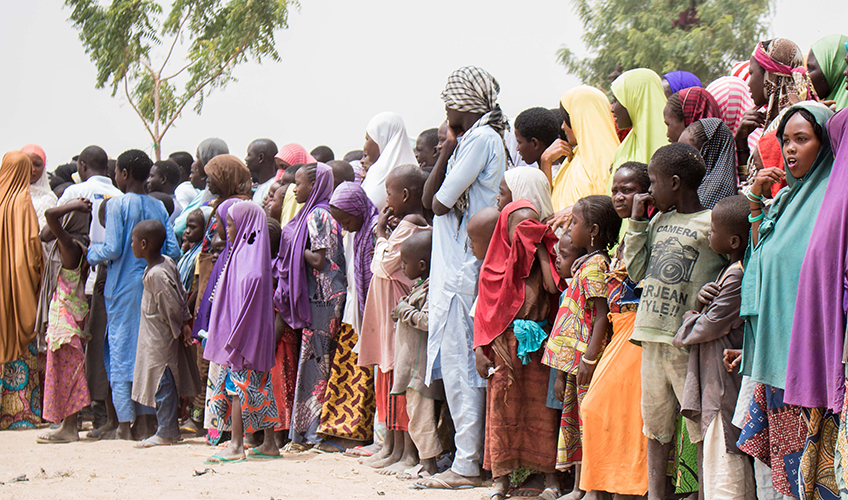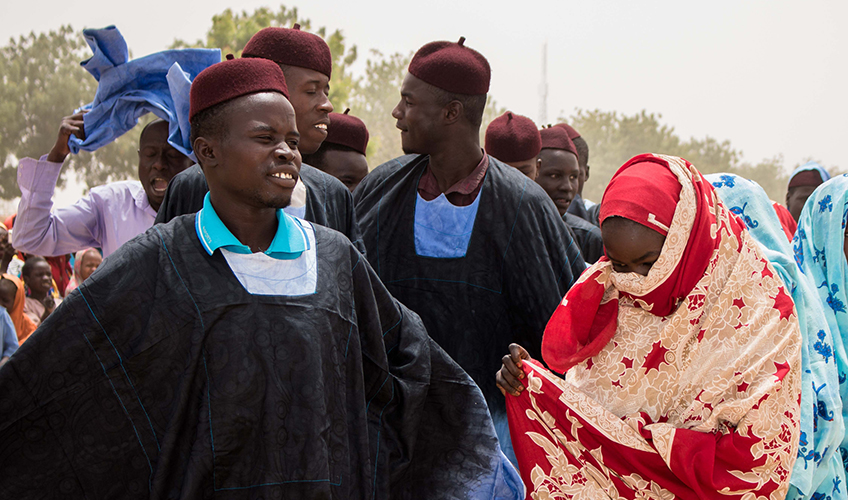Effective security service delivery through community oriented policing
Security forces as critical partners in the social contract between citizens and the state, provide an essential service of ensuring human security. In turn, civilian oversight of security forces should be a central pillar of democratic societies.
Community policing models in which civilians and security forces collaborate to address insecurity have become increasingly popular. Unfortunately, in most fragile and conflict affected settings, that social contract – accountability, engagement and communication – between civilians and security forces break down or further deteriorate.

Sadly, Nigeria has followed this pattern. For example, the Police Act of 1943 supports a regime policing model where the police function less to serve the rule of law and more to secure the interests of the dominant group or regime in power. Section 24 gives any member of the Nigerian Police Force the power to arrest without warrant at any time. The police enjoy immense powers, which must be controlled to prevent their misuse, but controlling the police inadvertently becomes a source of tremendous power in itself too.
Without room for community participation in security service delivery, mistrust often brews and creates a platform for the police and other security forces to perpetrate abuse of human rights, torture, brutality and wanton corruption, escalating conflicts in communities. Indeed security force abuses have been linked to the rise of the Boko Haram insurgency, with the police a prime target in the early years. Despite multiple operations to restore security in the northeast, their presence has failed to rebuild trust with civilians, with police often cited as among the least trusted state actors.
On the other hand, effective community-oriented security action leads to increased trust, accountability, collaboration and protection of civilians. International Alert Nigeria’s work under the Nigeria Stability and Reconciliation Programme (NSRP) from 2012-2017 demonstrated clear impact where community members and security actors are brought together to jointly analyse and respond to local conflicts, including addressing violence against women and girls.

More recently, from 2018-2020 Alert worked with 4 sectors of the Civilian Joint Task Force (CJTF) across the Maiduguri Metropolitan Council (MMC) and Jere Local Government Areas in Borno State, northeast Nigeria. The CJTF is a semi-formal militia originating as a community self-defence group against Boko Haram. However, as their security operations expanded there were increased reports of abuses committed by the CJTF.
The project aimed to improve the conflict and gender sensitivity of CJTF actions and restore trust and credibility with the communities they served. This was achieved through a range of trainings to build the capacity of the CJTF and community members to peacefully resolve conflicts, inclusive security roundtables to identify and respond to local security threats, and social and media activities to restore trust and understanding between civilians and security forces.
Those activities provided an opportunity for the semi-formal militia to understand the role of community members in intelligence gathering, conflict mediation and conflict-sensitive communication to keep the peace. Among many recorded successes, when a member of the CJTF was caught on video torturing two boys in June 2019, the CJTF leadership was able to use its code of conduct, which was put together with the participation of the communities, to reprimand the member so he was able to understand the gravity of the situation and then hand him over to the police for prosecution.
The results of our work show that community-based inclusive safety and security platforms for analysing, preventing and addressing violent conflict create the foundations for social cohesion within communities, and between communities and security sector institutions. Drawing on this experience, our latest project is a public safety and security programme, which was launched at the end of 2019 specifically targeting the Nigeria Police Force in Bama, Dikwa, Gwoza and Ngala Local Government Areas of Borno State. The target sites are areas where the police is gradually reassuming responsibility for security operations after a long period of dominance by the military, in the context of counterinsurgency measures.

The flagship activity is a series of Community Safety Partnership dialogue sessions, providing a platform for civilian and police parties to address grievances, insecurity and issues that breed mistrust, followed by supportting initiatives that respond to the challenges raised. The dialogues are complemented by a regular live radio phone-in programme that allows the wider community to contribute to the discussions and outputs from the sessions, creating a feedback loop and a sense of participation in the local security architecture of the community.
In a context where there are rare opportunities for women to participate in decision-making, particularly on security issues, the project also aims to improve a culture-sensitive gender mainstreaming approach for increased women’s participation: Alert supports fora for women to discuss issues and concerns which specifically affect them and ensures these are integrated into the discussions and responses of the Community Safety Partnerships. This includes radio programmes where women leaders, mediators and participants discuss issues relating to their safety and violence against women and girls.
If community oriented security is better coordinated, more inclusive and accountable in their decision-making, then communities will be better able to manage security and conflict threats, thereby contributing to improved resilience, stabilisation and social cohesion.



